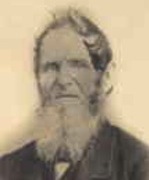 by Peter H. McCracken (2000)
by Peter H. McCracken (2000)
[SLEEPER, JOHN SHERBURNE], “HAWSER MARTINGALE” (1794-1878). An author and journalist from New England, John Sherburne Sleeper first went to sea in 1809 as a cabin boy and assumed his first command in 1821. By 1825 he was captain of an East Indiaman, and he spent much of his career in merchant service out of Boston. After retiring from the sea in 1830, he began working in the printing industry, publishing and editing several newspapers in Lowell and Boston. Using the pseudonym “Hawser Martingale,” Sleeper published several books that fictionalized his adventures at sea. His early stories, serialized in the newspapers he edited, focused on the deadly combination of drunkenness and mutiny at sea; given the opportunity, Sleeper rarely failed to preach moral reform and temperance. When he avoided moralizing, Sleeper’s humor could illustrate the vitality and comedic aspects of life at sea.
Sleeper’s first book, Tales of the Ocean (1842), is a collection of stories that draw from his time as a sailor. One story, “Impressment of Seamen,” was the source for the incident in Herman Melville’s White-Jacket (1850) in which White Jacket, threatened with flogging, considered hurtling himself at Captain Claret and sending them both into the ocean. In Sleeper’s story, the flogged sailor actually threw himself and the captain overboard. Sleeper’s other works include the autobiographical Jack in the Forecastle (1860) and the novel Mark Rowland (1867), which includes the story of a sperm whale’s ramming a whaler.
Tales of the Ocean and Essays from the Forecastle (1842)
Mark Rowland, A Tale of the Sea (1867)
Jack in the Forecastle (1880 ed.)
keywords: male, white
